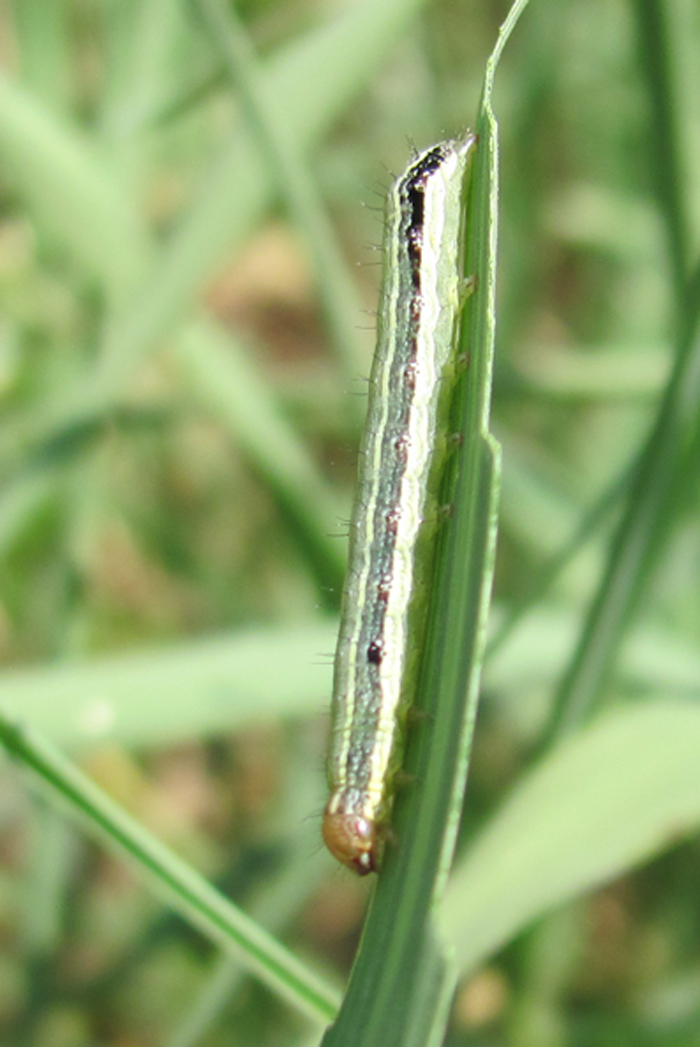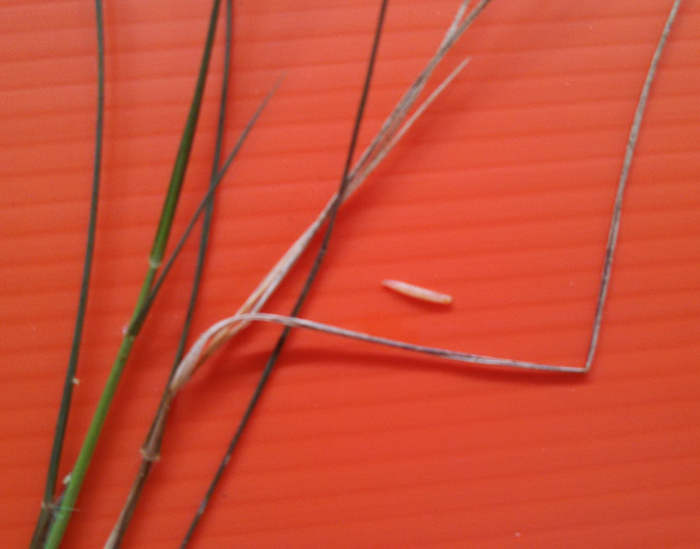
by Doug Mayo | Jul 18, 2014
Every summer, fall armyworm moths fly up from South Florida to lay their eggs in well fertilized hay fields and forage crops in the the tri-state region. The timing of the first major infestations varies from year to year, from May through August. Judging by reports...
by Judy Biss | Jul 18, 2014
Chikungunya is a viral disease transmitted to humans by mosquitoes. It is also called “contorted fever” or “that which bends up.” The virus is cycled between mosquitoes and humans, and there is no vaccine against Chikungunya virus. Two species of mosquitoes can...

by Russ Mizell | Jul 11, 2014
Bermudagrass Stem Maggot Likely to Increase in North Florida Liza Garcia-Jimenez, UF/IFAS NFREC IPM Program The first high populations of Bermudagrass stem maggot (BSM), Atherigona reversura, are now occurring in Central Florida and likely will be seen in North...
by Jennifer Bearden | Jun 20, 2014
Fall armyworms were found this week in a soybean field in Okaloosa County. This pest can completely defoliate a field in a week as was the case in the field pictured above. Fall Armyworms overwinter in southern Florida and southern Texas. The moths or adult stage are...
by Les Harrison | Jun 20, 2014
The first occurrence of the mosquito-borne tropical disease chikungunya has occurred in north Florida. Two cases have been reported, in Leon County, from residents who recently visited Haiti. This virus originated in sub-Saharan Africa and the southeastern quarter of...
by Michael Donahoe | Jun 13, 2014
Our oldest planted cotton has started squaring and it’s time to start scouting fields for plant bugs. For the past several years the tarnished plant bug has been ranked nationally as the number one cotton insect pest in terms of yield losses. This has been especially...



